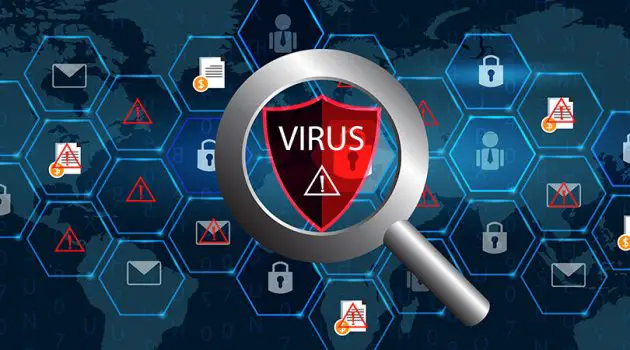If you’re not careful, the Internet can be a dangerous place. It doesn’t mean you should be scared away from the Internet because it is such a great resource. At the end of the day, the positives outweigh the negatives. While browsing the Internet, you could potentially encounter the following threats:
- Viruses
- Spam
- Spyware and Malware
- Phishing
- Online scams
- Inappropriate content
- Online predators
- Cyberbullying
- Cyberextortion
- Identity theft
- Financial and credit card payment data theft
- Blackmail
- Sale of personal and corporate data
- Cryptojacking
10 Ways to Stay Safe Online
Table of Contents
Protect your accounts with a strong password
- Choose passwords that are hard to guess. It is ideal to have a long password with symbols and numbers instead of 123456, qwertz, or password.
- You can use this website https://passwordsgenerator.net/ to generate strong random passwords.
- Don’t let anyone else know your password once you have set one.

Add Multi-factor Authentication when given the option
Websites and email providers usually offer the option of setting up multi-factor or two-factor authentication. If you are given the opportunity to set up a multi-factor authentication method, just do it.
What does multi-factor authentication entail? The multi-factor authentication method requires a user to present two or more pieces of evidence to an authentication mechanism in order to gain access to a website or application.
Use Google Authenticator

One popular multi-factor authentication app is Google Authenticator. By using 2-step verification for all your accounts, you’ll have a stronger level of security. It works by scanning the QR code in your 2-step verification settings for Google or any third-party service. A unique code will then be provided to you every time you want to sign in.
Listen to your doubts
If it’s too good to be true, it is likely untrue.
There’s a good chance that it’s not real if it seems too good to be true. Some examples are as follows:
- You did not win a lottery that you never even entered, even just for a hundred dollars. And especially not a million dollars.
- You did not win the sweepstakes draw yesterday.
- You are not going to inherit money from Africa.
- You will not earn tens of thousands per day if you start trading in some dubious trading platform based in Asia.
- You will not get an apartment for a very cheap price near the beach that you cannot confirm in person.
There are many cybercriminals operating and looking for victims day in and day out. Make sure you do not fall for them. Some of them will even post advertisements on popular platforms. Find a way to confirm that they are legitimate.
For high-ticket items, consider using Escrow.com.
Use Escrow.com
If you are buying something for a large amount, why not entail the help of Escrow.com? (Editor’s Note: this is not an ad.) I have personally used Escrow.com and can vouch that they are legitimate and will help you buy and sell high-ticket items securely online.
Keep your Software and Firewall Up-to-date

-
Recent software updates usually fix exploitable security flaws. This applies to both desktop and mobile operating systems.
- Update the software on your computer regularly. Microsoft and Apple both have features that make this process easier.
- Update the software on your mobile phone regularly. iOS and Android updates are easy to download and install on your phone. Each update will fix critical bugs and improve the stability of your device.
- Install a firewall if you do not have one and keep it updated. Make sure the firewall is turned on. Several malware programs can disable protective software, so check it at least once a week.
Use a Router

Install Virus Checkers and Spyware Scanners
Viruses are sneaky programs that arrive by e-mail or as downloaded files. They instantly start wreaking havoc on your computer. Every single day, there are new viruses launched, so you should always run a virus checker. This means that your virus list and your virus checker need to be up-to-date so they are able to find the latest threats.
On the other hand, spyware is similar to a virus except that it is downloaded by your browser. In spyware, information about you is gathered and sent to another site without your knowledge or consent. Spyware is often used by advertisers to display pop-up ads on the sites you visit. In addition, spyware can send spam from your computer, capture every keystroke you type, and send it to some malefactor elsewhere online.
Two popular programs are McAfee VirusScan and Norton Antivirus. Microsoft also has a virus checker called Windows Defender too.
Switch to a Privacy Browser

To minimize the amount of information gathered about you, switch to a privacy browser. The two most popular ones are DuckDuckGo and Brave Browser.
Privacy browsers prevent advertisers and trackers from collecting information about you without your permission.
Alternatively, you can use your Chrome or Safari browsers in Incognito (or Private) mode if you want to stick to them. In this way, you can keep your Internet browsing activity private. When Incognito Mode is enabled, any cookies that a site tries to upload onto your computer will be blocked or deleted, and there will be no record of your browsing in your local search history. Anything you do while using this setting will be wiped out.
Do not open an e-mail attachment unless you trust it 100%
- Open an attachment only if it’s from someone you know and you’re expecting it. If you’re not sure, contact the sender.
- If you are unsure of the destination of a link, do not click it.
- If you click on one and the site asks for your password, credit card number, or any personal information, close the browser window.
- Do not divulge any personal information to strangers.
Download official apps

Mobile devices are just as susceptible to online threats as our laptops. In fact, tablets and cell phones are at risk from dangerous apps and links sent by text messages.
In order to avoid any security issue, you should do the following:
- Don’t click on links from strangers.
- Don’t respond to messages from strangers.
- Download apps from official app stores after reading reviews.
- Enable your security software on all your devices.
Always check the URL
- Verify that the URL points to the correct institution. If the website has misspellings and is not the correct website, they could be copycats and trying to steal your financial information.
- Make sure the URL address starts with https instead of just http.
- In the URL field, make sure there is a padlock icon. In this case, the website is secure and uses encryption to scramble your data.
A secure website will prevent identity thieves from stealing your personal information.
Final Thoughts

Cyber threats are constantly lurking and evolving. The key is to be aware of potential traps and avoid falling into them. Get in touch with law enforcement if you are receiving threats. In some cases, this is the work of many criminal gangs trying to find victims among the thousands of people they contact.
Be sure that everyone is aware of these rules and agrees to follow them if you share your computer with family or housemates. Children, in particular, need to be informed about these potential threats.







